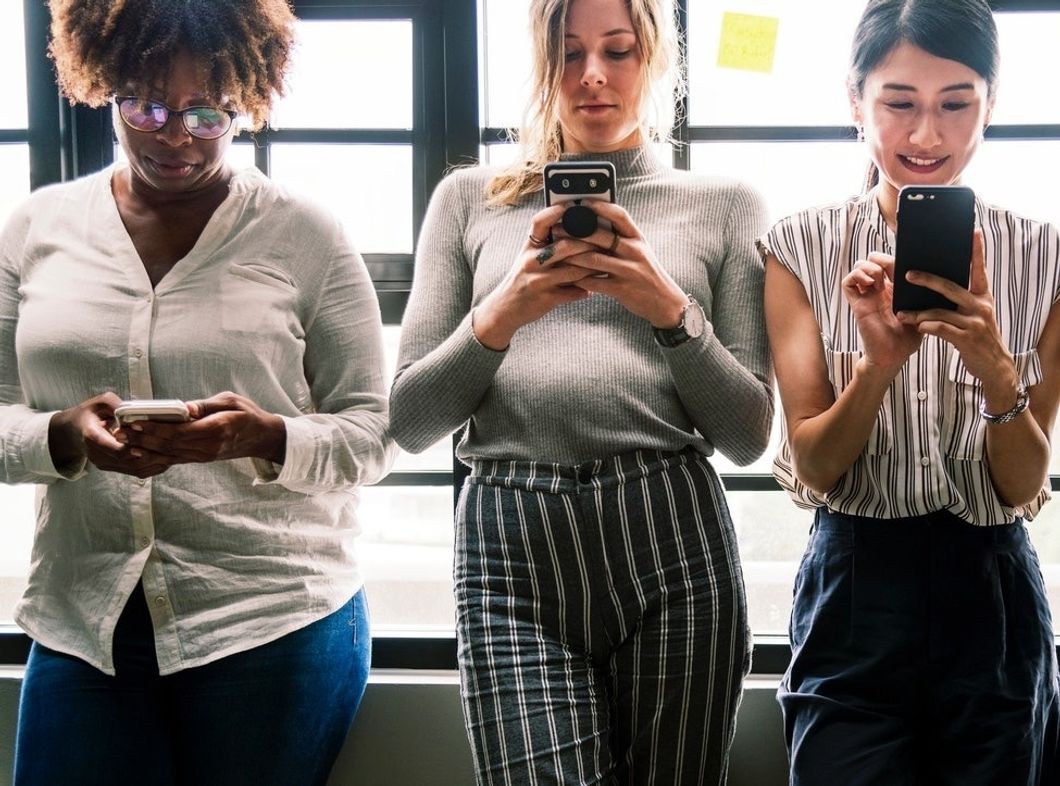It is not uncommon these days to see the eyes of many glued to the screens of their cell phones or tablets, some as young as the age of 4 years old. The necessity for human engagement becomes seemingly obsolete. The honing of social skills, adaptations of social integration and essential adequacies of face-to-face interaction become far and few between. Without such necessary developmental and interaction capabilities, individuals may lose the ability to speak confidently at an early age, without the presence of a screen to devoid them of their communicative awkwardness.
As someone who was born in the realm of the early 1980's, I have watched these technological advances in society consume the minds of young people, leaving them defenseless to cope with conflict or human engagement constructively in a real-world scenario. Technological acceptance begets familiarity and familiarity induces seclusion, cyberbullying, and the prominent rise of the inferiority complex, leading to adversely asocial behavior or overcompensation in the social media world with embellishments of life, personal or professional accomplishments, or conveyed perceptions of a life that is biased and "filtered," as well as a narcissistic, compelling desire to photograph one's self at all times (which only creates self absorption and disruption at times).
Basic aspects of human interaction, such as cues for non-verbal interaction (adhering to proper eye contact when conversing, a handshake, attentive mannerisms), as well as the respect of not scrolling through our phones in the presence of quality time with a friend, significant other, or loved one have become rare commodities in this day and age, to the point where lacking such considerations for others is considered an acceptable social normality. Cues of verbal interaction are significantly affected with our inabilities to speak to peers, professionals, and/or other individuals in an assertive, confident, or articulate manner. As a society, our level of acceptance for engaging in informal text, email, or social media rituals may also often defy our logic of appreciation for grammatical and proper language (creating difficulties in "switching over" from mindless social media verbiage in accordance to our surroundings).
Our pursuit for life happiness is suddenly contingent on the narcissistic characteristics which define us by how many "likes" we can acquire, or how many "friends" or "followers" we can accumulate over our multitude of social media accounts. And yet, no matter how many "friends" we accept, how many friends can we truly depend upon with the important aspects of our lives that really matter?
The approval (or lack of) hundreds and sometimes thousands of followers potentially create the capabilities to distort self-images and self-esteem, over-exaggerating the importance of peer validation, which has in some cases, correlated with depression and/ or anxiety and immense depreciation for self-worth. The obsession with gaining such approval proves to be a dangerous game of isolation, and for some, has led to committing murder in order to gain social media approval.
The distortion of some people's real world and social media world collide so immersively, for example, I once had a friend (now ex) say to me many years ago, "your relationship doesn't count if it's not official on facebook" and I stared at her like she couldn't possibly be serious. Don't be this person who is clearly out of touch with reality. Your life can and does happen without announcing it to the social media world.
The real world is happening around you. Absorb it. Appreciate it. Acknowledge there's a distinct line between real life and social media life. Otherwise, you may find yourself in the percentage of social media conformers who become nothing more than mindless minions missing out on the real meaning of life.
















